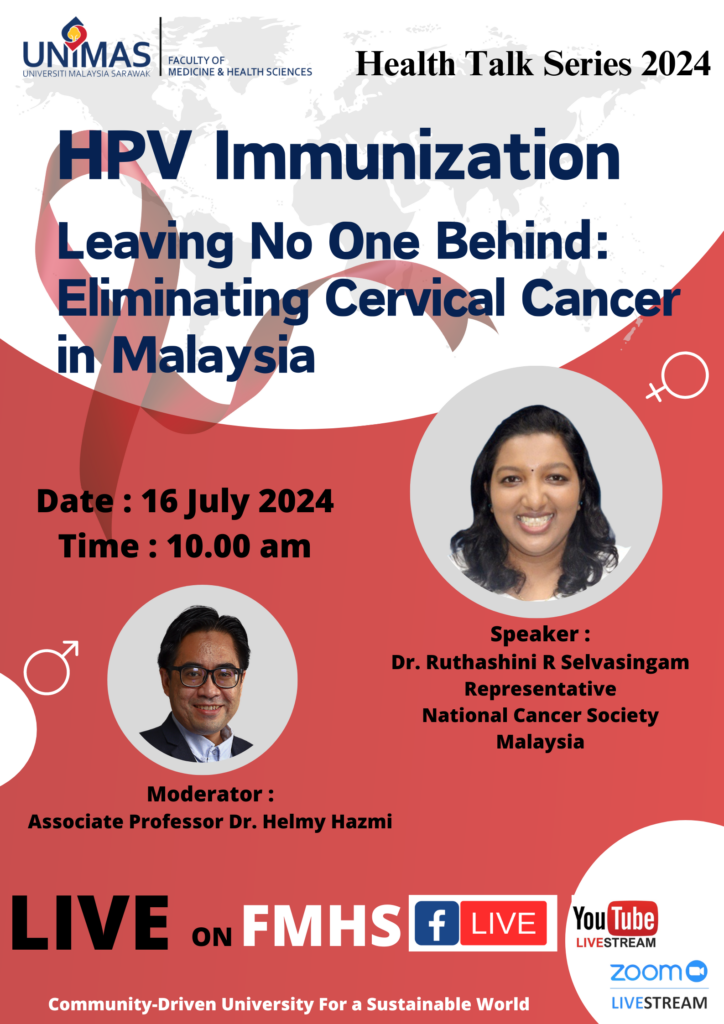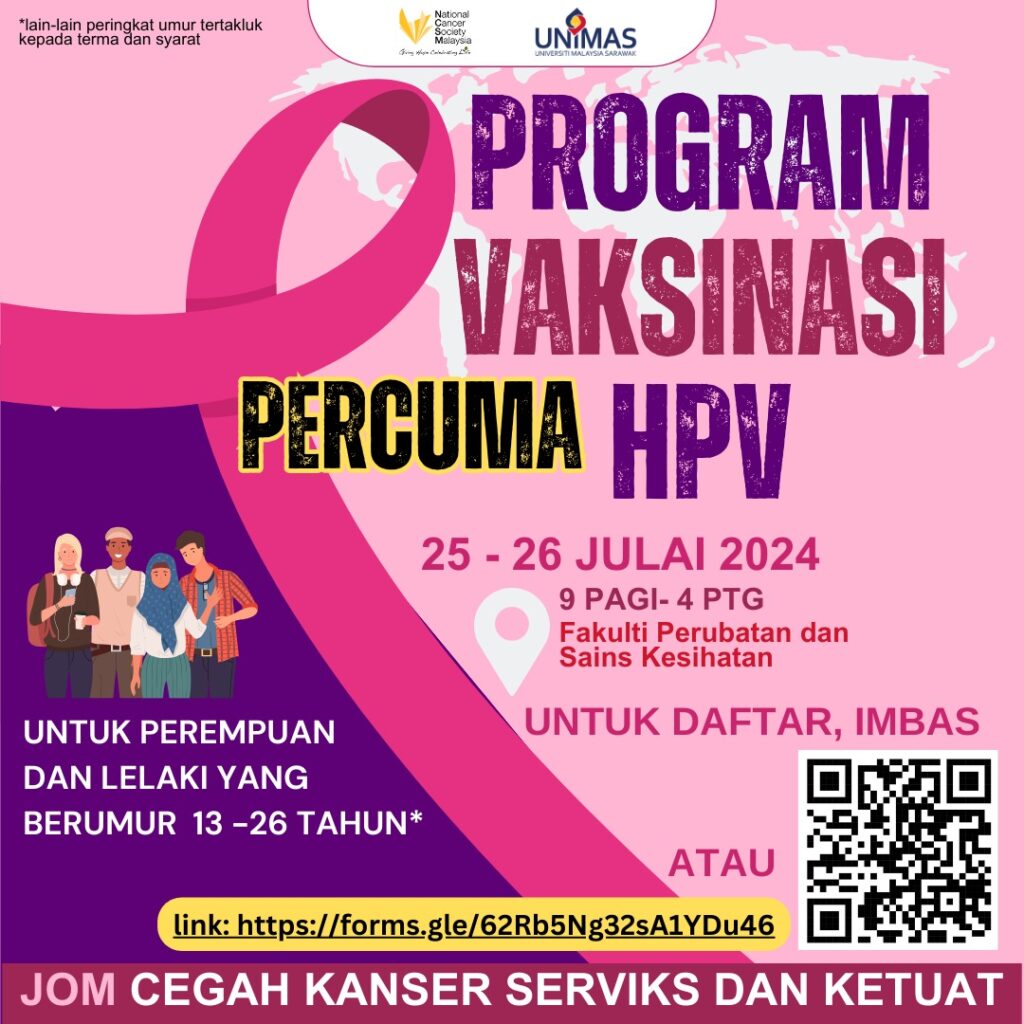Faculty of Medicine and Health Sciences, UNIMAS, 16 July 2024 – A webinar on “HPV Immunisation: Leaving No One Behind—Eliminating Cervical Cancer in Malaysia” was held on Zoom, attracting a wide online audience.

The event, which began at 10 AM, was also telecast live on the Faculty of Medicine and Health Sciences’ Facebook and YouTube channels. There were 622 participants in the webinar on Zoom, and many more joined via Facebook and YouTube Live.
Dr. Ruthashini R. Selvasingam, a medical doctor and public health advocate with the National Cancer Society Malaysia, led the webinar. She is also a DrPH student at Universiti Malaya (UM) and had worked in Marudi and Miri before pursuing her studies at UM. Her presentation touches on the significance of HPV disease, current statistics on cervical cancer in Malaysia, and the comprehensive HPV vaccination rollout plan for Sarawak.
Cervical cancer is the 4th most common cancer affecting women in the world. In 2022, 660000 new cases and 350000 deaths were reported, the latter contributing to 7.7% of deaths from all cancers in women.
In Malaysia, it is the third most common cancer affecting Malaysian women, behind breast and colorectal cancer.
Although it is preventable and can be diagnosed early, a huge number of cancer patients present late—almost 41% of cancer patients—when they are in the third and fourth stages of the cancer. Coming late means that the treatment outcome is not as great as those who come at the earlier stages, attaining a better quality of life. Survival is better when detected early.
Dr. Ruthashini elaborated on the transmission of HPV and its role in causing cervical cancer and other related diseases. A persistent Human Papilloma Virus (HPV) infection is the primary cause of cervical cancer.
She highlighted the urgency of preventive measures, supported by current statistics on the incidence and mortality of cervical cancer in Malaysia. Besides early screening for cancer, prophylactic vaccination is an effective and cost-effective strategy to prevent cervical cancer.
An important key focus of her talk was the plan for the HPV vaccination programme in Sarawak, aiming to vaccinate all eligible individuals, both male and female. Dr. Ruthashini also provided details on the types of vaccines available and emphasized the vaccine that will be used in the vaccination drive at Universiti Malaysia Sarawak (UNIMAS) on July 25–26.
The upcoming HPV vaccination drive is open to males and females between the ages of 13 and 26 years old. It will be held at the Faculty of Medicine and Health Sciences, UNIMAS, from 9 a.m. to 4 p.m. To get vaccinated, participants must fill out the registration form available at this link: https://forms.gle/62Rb5Ng32sA1YDu46.
The webinar concluded with a strong call to action, urging the public to participate in the upcoming HPV vaccine drive to help eliminate cervical cancer in Malaysia. -HH-

